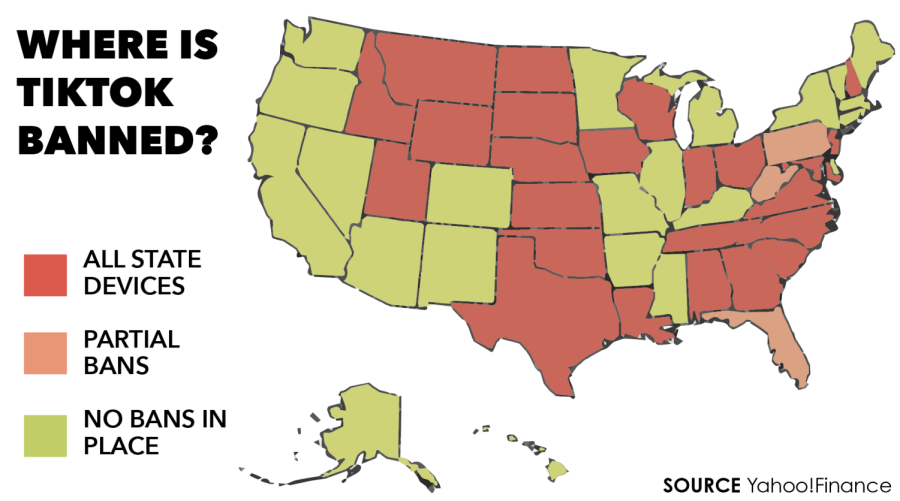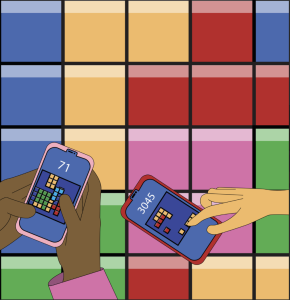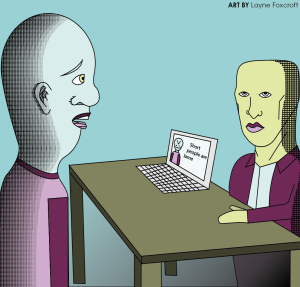President Joe Biden bans beloved app TikTok
On December 28, Biden signed the 2023 Federal Spending Bill, a 4,126-page document containing a clause prohibiting TikTok on government devices.
March 7, 2023
Even before Joe Biden assumed the presidency, U.S. leaders have been looking into TikTok, one of the largest social media platforms in the world. In 2020, President Donald Trump tried to pass a bill banning TikTok on all platforms, claiming it’s a threat to national security. Congress foresaw Biden’s proposal, suggesting he hold off on it, as it could lead to possible legal actions from Bytedance, the company behind the app. After three years, this proposal has finally come through, but only for government issued devices.
On December 28, Biden signed the 2023 Federal Spending Bill, a 4,126-page document containing a clause prohibiting TikTok on government devices. This was a compromise, as Bytedance tried resolving the issue months prior to the ban.
“I believe it was a smart political choice to lower the risk of sensitive information leaks,” sophomore Jolie Kingham said. “It makes sense that government officials wouldn’t want to risk anything being leaked.”
As TikTok is a Chinese owned app, American politicians fear that the Chinese government will use TikTok to exploit users, stealing their device’s data. Government officials asked their staff to delete the app from their phones before this bill passed. The app will be permanently banned by the end of February, 2023.
“I don’t think the ban is that bad, because everyone who uses TikTok uses it on their personal phones or personal computers,” social studies teacher Charles Stampley said.
This ban affects four million government employees, whose issued devices will lose access to the app. The only people that are not affected are law enforcement and national security agencies, who can reference the app for special security cases.
“I do believe this ban is helpful, because I’ve worked in cyber security before and there are a ton of cyber security concerns out there,” Stampley said. “I have worked with government and military systems, and I’m all for banning TikTok on government devices.”
Bytedance is based in Beijing, China. This makes U.S. officials believe the company is using their employees to send millions of U.S. citizens’ data to the Chinese government. Even though this theory hasn’t been confirmed, several articles have stated the company has access to information like IP address, contact info, and much more while you’re on their app.
“All of our data is collected all the time by different apps, and TikTok is no exception, unfortunately,” sophomore Sofia Yordanova said. “But I don’t really think it matters too much for us, past important passwords being leaked to certain personal accounts.”
For over three years, Bytedance has tried to negotiate offers with the US Committee on Foreign Investment to keep the app on all devices, as they don’t want to lose those four million users. The Committee of Foreign Investment group reviews everything that goes through with foreign deals. They argued to keep TikTok on all platforms, while they work to detect all interferences from the Chinese government.
“I do think TikTok’s ban was useful to some extent, but it’s not really helping the problem of the data being leaked, whatsoever, ” Yordanova said. “TikTok is not the only app that has access to our data.”
Before this ban took place, over half of the U.S. governors had previously banned TikTok on all state issued devices; some states have banned other apps as well. Even Afghanistan and India have banned TikTok for privacy reasons.
“The banning of TikTok is something that each company and state will have to decide for themselves,” Stampley said.
This banning is common within other companies, as well as universities, throughout the United States. The government wasn’t the first to take action; several universities in Texas were some of the first to have taken initiative on this ban. These universities include the University of Texas, Texas A&M University, the University of Houston System, and Texas Tech University.
“I don’t think schools like Bowie will ban TikTok,” Kingham said. “There would be a lot of backlash, and people would get very upset considering how much TikTok is a part of an average kid’s life.”











